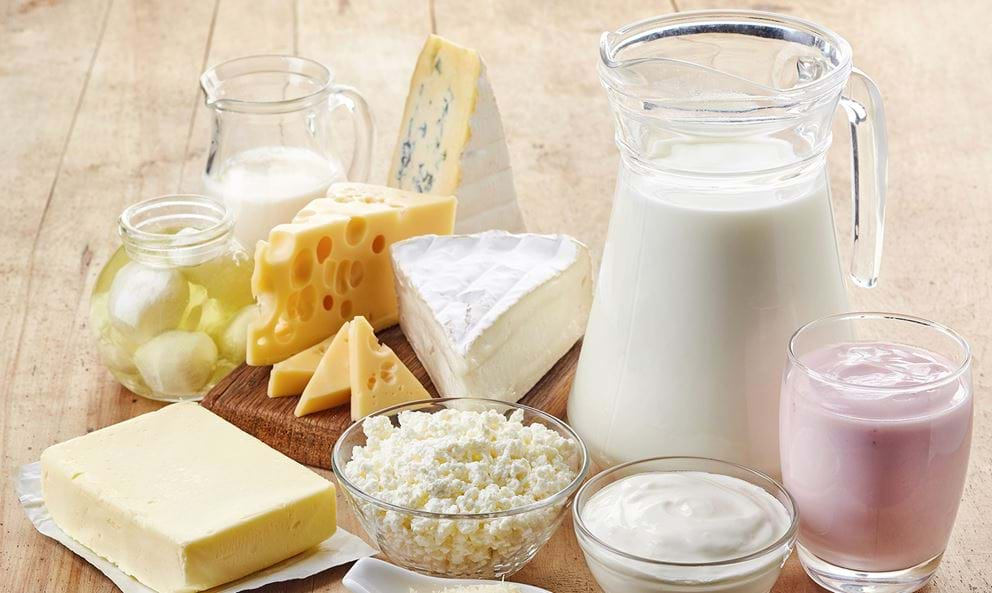Should I Be Cutting Down on Dairy?

Dairy is a pretty controversial food group in the fitness world these days. On the one hand, you’ve got some powerlifting enthusiasts arguing that drinking a gallon of milk a day (also known by the acronym ‘GOMAD’) is the key to becoming a musclebound demigod, while on the other, paleo spokesmen and vegans alike warn that dairy might worsen your health and lead to weight gain.
In this article, we’ll investigate what the truth is.
The benefits of dairy
The first benefit of dairy products is that they’re nutrient dense. Milk contains, among other things, phosphorus, B12, potassium, magnesium, zinc, and of course, calcium.
In addition to the micronutrients, dairy products are also a good source of protein, and are calorically dense, as well. 100ml of whole milk contains around 60 calories and 3g of protein. Milk also tends to be a very affordable foodstuff, making it a staple bulking food for many lifters on a budget.
Dairy products like hard cheeses are also easy to eat on the go as a snack, while blue cheeses, in particular, contain probiotics that can aid gut health.
The downsides of dairy
The first major downside of dairy to keep in mind is that it’s a very allergenic and poorly tolerated food for a lot of people. This isn’t universal, but it does have quite a lot to do with your ancestry. Populations native to the Southern hemisphere frequently experience lactose intolerance rates of 60-100%, while those in the Northern hemisphere typically have lactose intolerance rates of 30% or less.
Among other things, for those who are lactose intolerant, it can cause bloating, diarrhoea and nausea, and may also lead to poor digestion due to an irritated gut lining. Lactose intolerance may also lead to chronic inflammation in the body (the root of many diseases). If you are lactose intolerant, it may be better to look at reducing your dairy intake.
Even for those who tolerate dairy products well, it's important to be aware that dairy products often contain high saturated fat content which may not be ideal. While some saturated fat is actually essential for the healthy function of the body, and should in no way be demonised, too much of the stuff can skew daily macronutrient ratios and may also have undesirable effects on levels of LDL (”bad”) cholesterol.
If want to still enjoy dairy foods, try keeping an eye on portion sizes and opt for ones lower in saturated fat such as:
- Semi-skimmed or skimmed milk
- Low fat yoghurt
- cottage cheese
- quark cheese
Or you can try some alternatives to dairy products such as:
- Coconut milk
- Almond milk
- Cashew milk
- Hemp milk
- Pea milk
- Rice milk
- Water kefir
- Coconut yoghurt
- Tofu gouda


